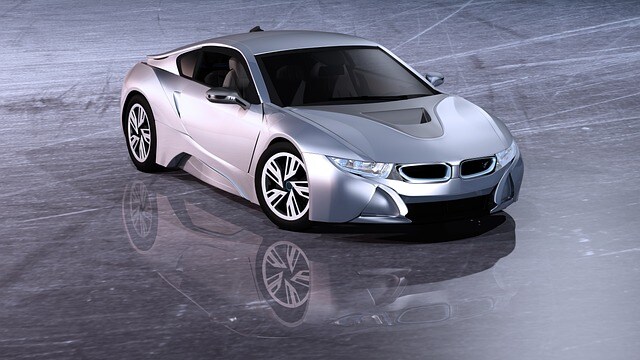
In today's world, electric vehicles (EVs) and hybrids are seen as the future of personal transportation. But which one is the best choice for you? In this article, we'll take a look at the pros and cons of both EVs and hybrids to help you make an informed decision about which car is right for you.
Click here to browse every Hyundai hybrid model in stock.
The biggest advantage of electric vehicles is their environmental friendliness. EVs don't produce any tailpipe emissions, meaning they have no direct impact on air quality. Additionally, they are often much more fuel-efficient than traditional gasoline-powered cars, resulting in lower running costs.
On the other hand, hybrid cars have their own set of benefits. They combine a conventional internal combustion engine with an electric motor, allowing them to switch between petrol and electric power depending on driving conditions. This makes them more efficient than gasoline-powered cars while still providing the convenience of an internal combustion engine.
So there you have it: Hybrid vs EV cars - which one is best for you? Keep reading to find out!
Click here to browse our inventory of hybrid models for sale!
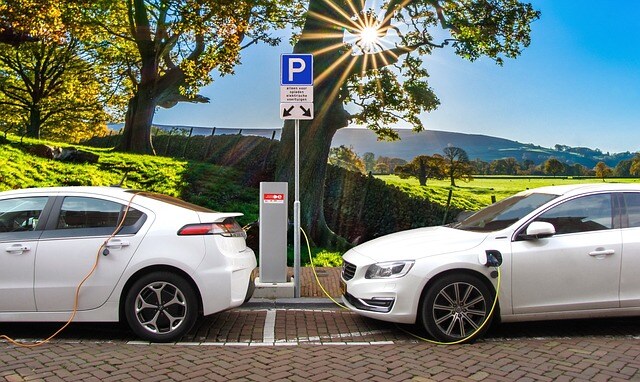
Definition Of Hybrid And Electric Vehicles
A hybrid car is a vehicle that uses both an internal combustion engine and an electric motor. The combustion engine runs on either gasoline or diesel fuel, while the electric motor is powered by batteries. The combination of both engines helps to improve the speed and fuel efficiency and reduce emissions.
Electric vehicles are powered solely by electric motors and batteries. Some popular models include the Tesla Model 3, Nissan Leaf, and Chevy Bolt EV. Most electric car options offer a zero-emission driving experience as they do not emit any exhaust fumes into the air. They also require fewer parts than traditional vehicles, making them cheaper to maintain over time.
Click here to learn more about Hyundai electric models.
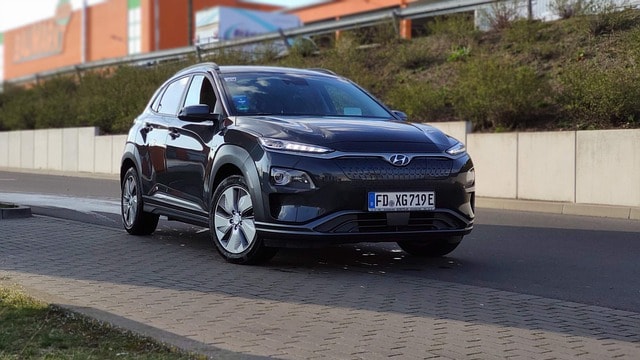
Advantages Of Each Vehicle Type
When deciding between hybrid and EV cars, it's important to consider the advantages of each. Hybrid vehicles are powered by a combination of an internal combustion engine and an electric motor. This allows them to run on either gasoline or electricity depending on the driver's needs. The main advantage of hybrid cars is that they can be refueled quickly and easily. Additionally, hybrid vehicles typically have better fuel efficiency than traditional gasoline-powered cars due to their ability to switch between power sources.
Click here to learn more about Hyundai Electric and hybrid models.
On the other hand, electric vehicles (EVs) are powered solely by electricity, usually either from a battery pack or two electric motors. EVs have several advantages over hybrids: they produce no emissions since they don't rely on burning fossil fuels; they're quieter than hybrids; and they don't require regular maintenance like oil changes or spark plug replacements. Additionally, EVs have much lower running costs as electricity is cheaper than gasoline in most countries.
Overall, the type of electric car that's best for you depends on your driving habits and budget. If you want something economical with minimal environmental impact then an EV might be a better choice for you than a hybrid car. However, if you need something with more power then a hybrid could be the right option. Ultimately, it's up to you to decide which vehicle type suits your needs best.
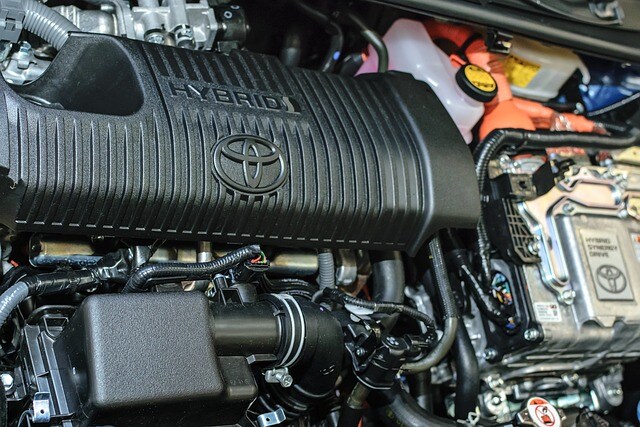
Disadvantages Of Each Vehicle Type
Hybrid and electric vehicles are becoming increasingly popular, but both have their disadvantages. Hybrid cars are powered by a combination of electric power and gasoline, while electric cars rely solely on an electric motor. This section will explore the drawbacks of each type of car.
Hybrid Cars
They can be more expensive than traditional gasoline-powered cars.
They may offer less interior and cargo space than traditional cars due to the need for additional components such as batteries.
Hybrid vehicles may not have the same performance capabilities as traditional gasoline-powered vehicles, such as the Ford Mustang Mach-E.
The all-wheel drive feature is not always available in hybrid cars.
Electric Cars
Electric vehicles tend to be more expensive than hybrid or traditional gas-powered cars.
Charging stations are not available everywhere, so charging your vehicle overnight at home is often necessary and can take several hours to complete a full charge.
All Electric vehicle models may have limited range due to battery size, meaning some longer trips may require multiple stops for charging breaks along the way.
Electric vehicle batteries need to be replaced after a few years, adding additional costs that you don't find with traditional gasoline-powered vehicles.
When deciding which type of car is right for you, it's important to evaluate how much space you need, combined with how much money you can afford to spend within your budget.
Click here to see current Hyundai Specials in Manchester, NH.
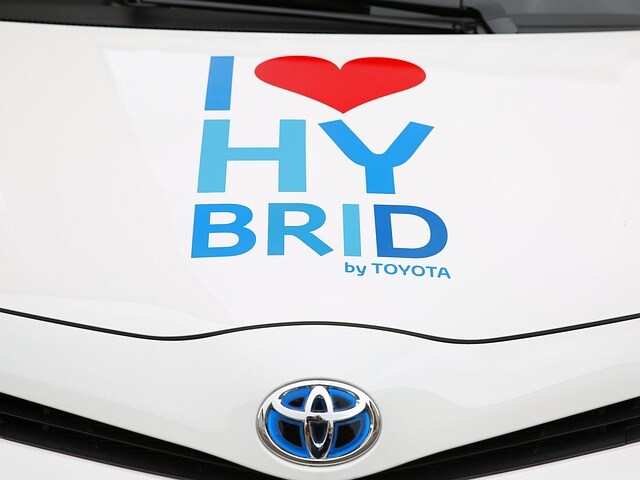
Hybrid VS EV Cost Comparison
Are you finding it difficult to decide between a hybrid and electric vehicle for your next car purchase? Cost is an important factor when making any major purchase, so let's explore the cost comparison of hybrid vs. electric cars.
The best electric vehicle models have a higher performance model that offers quicker acceleration and longer range than the base model. As such, they come with a higher base price. Hybrids provide good value for money and are generally more affordable than electric vehicles, but you won't get the same performance or range as their electric counterparts.
In terms of running costs, both hybrids and electric vehicles are very economical. While electricity costs less than petrol or diesel, hybrids also benefit from using two power sources - gasoline and electricity - so they can achieve excellent fuel efficiency ratings.
So which costs more? It really depends on how much you're willing to spend on your new vehicle, as well as what features you want in it. Electric cars offer higher performance, longer ranges and quick acceleration at a higher base price while hybrids provide good value for money at a lower cost.
Click here learn more about Hyundai EV Charging Options.

Maintenance Requirements
When it comes to maintenance requirements, hybrid and EV cars are quite similar. Hybrid cars require regular oil changes, brake pad replacements, tire rotations, and other standard maintenance operations. EV cars also require regular tire rotations and brake pad replacements, but they don't need oil changes since they don't have an internal combustion engine. However, EV car batteries generally need to be replaced every 8-10 years or so. The cost of replacing the battery can vary greatly depending on the type of EV car you own; for example, a BMW IX or Porsche Taycan will cost more than a Mercedes Benz or Audi e-tron GT to replace the battery.
In terms of charging an EV car, there are two main options: slow charging and fast charging. Slow charging typically takes from 4 to 10 hours for a full charge and is usually done using either a wall outlet or special charging station. Fast charging usually takes about 30 minutes for a full charge, but this type of charge does tend to decrease the life span of an EV car's battery over time if used frequently.
Overall, hybrid and EV cars both require regular maintenance in order to ensure that they remain in good condition. When it comes to replacing batteries on an EV car, it is important to consider both the cost and the length of time it takes for a full charge when making your decision.
Click here to browse every Hyundai hybrid model in stock.
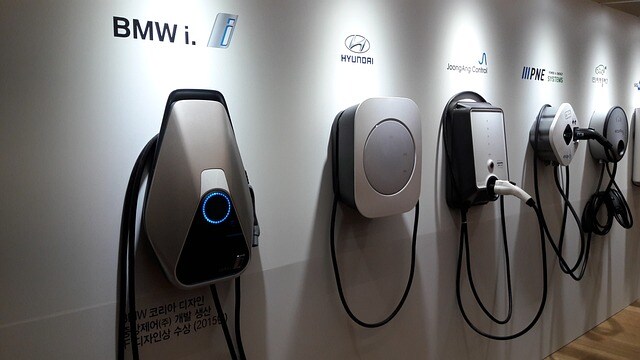
Range Comparison
Now that we have looked at the maintenance requirements of hybrid and EV cars, it's time to consider the range comparison between the two. Electric vehicles have become increasingly popular in recent years, and this is because they offer a surprisingly efficient range. The Tesla Model S, for example, can travel up to 370 miles on a full charge. Other EVs such as the Porsche Taycan Cross Turismo and Jaguar I Pace can achieve around 300 miles per charge.
These are just some of the top-end models however; mainstream models such as the Nissan Leaf or Kia Soul EV can still offer up to 150 miles per charge, which is more than enough for most people's everyday needs. It's clear that electric vehicles are leading the way when it comes to range performance, making them a great option for those looking for an efficient car with a long-lasting battery.
Recharging Times
Recharging times can be compared to the filling of a cup. When our cup is empty, we want it to be full and ready to go as soon as possible. The same is true with cars - when they are running low on power, we want them refilled just as quickly.
Hybrid cars have a few advantages in this area. For starters, their instrument panel will tell you when it's time for a recharge. Additionally, hybrids have a gas tank which helps extend the range between fill-ups and can help reduce recharging times. Finally, most hybrid models offer more space than an EV car, allowing for longer trips without needing to stop for a recharge.
On the other hand, EVs are becoming increasingly popular due to their zero-emission capabilities and lower cost of operation over time. One benefit of an EV is that they often come with fast-charging capabilities which allow them to be recharged quickly while out on the road.
When choosing between a hybrid or EV car, its important to understand the different benefits of both types:
Hybrid cars offer more space and can provide extended range before needing to refuel or recharge.
EVs often come with fast-charging capabilities which allow them to recharge quickly while out on the road.
Many hybrid models are available for sale today at competitive prices.
Ultimately, it's important to consider all factors before deciding which type of car is right for you and your lifestyle needs.

Environmental Impact Considerations
Moving on from recharging times, it's important to consider the environmental impact of hybrid and EV cars. In terms of emissions, both types of vehicles are cleaner burning than most traditional combustion engines. But there are some key differences between them.
Do Hybrid Models Still Depend on Fossil Fuels?
Hybrids use a combination of gasoline and electric power to run their engines. This helps reduce emissions, but the gasoline engine still produces carbon dioxide and other pollutants. EVs don't have a combustion engine at all, so they produce no tailpipe emissions. This makes them more environmentally friendly than hybrids in terms of air quality.
Are All Electric Cars Considered Zero-Emission Vehicles?
Another major difference is the source of electricity that powers EVs. If an EV is powered by electricity generated from renewable sources like solar or wind power, then it can be considered a zero-emission vehicle since no fossil fuels are burned to generate the electricity.
However, if the electricity comes from coal-fired plants or other sources that rely on fossil fuels, then the emissions associated with generating the electricity must also be taken into account when considering the total environmental impact of an EV versus a hybrid car.
Ultimately, when deciding which type or brand of electric car is best for you, you should weigh both recharging times and environmental considerations carefully before making your decision.
Safety Ratings Comparison
Hybrid and electric vehicles have comparable safety ratings. Hybrid vehicles are equipped with advanced safety features, such as lane-departure warning systems, automatic emergency braking and blind spot monitoring. Electric vehicles also come with these same advanced safety features and may even offer higher levels of protection due to their lighter weight. Both types of vehicles have also been tested for crashworthiness and have achieved a five-star rating from the National Highway Traffic Safety Administration (NHTSA).
When it comes to overall safety ratings, hybrid cars tend to score slightly higher than electric vehicles. This is mostly due to their longer range, which can help drivers avoid running out of power in an emergency situation. Additionally, many hybrid cars feature additional safety features that electric cars may lack, such as a collision avoidance system or a rearview camera.
Ultimately, the decision between hybrid and electric vehicles comes down to personal preference and individual circumstances. However, both vehicle types offer excellent safety ratings and advanced features that can help keep drivers safe on the road. Therefore, it's important to consider all factors before choosing between the two options.
Resale Value Considerations
When deciding whether a hybrid or EV car is best for you, resale value should be taken into consideration. The average depreciation of a new vehicle after three years is about 53%, with some models depreciating more than others. This makes the resale value of cars a major factor in potential buyers' decision-making process.
Do Hybrid Cars Have A Good Resale Value?
Hybrid cars often have longer warranties, which can be beneficial when it comes to resale value. The warranties are typically transferrable, so they will still be applicable if the car is sold or traded in before the warranty expires. Because of this feature, hybrid cars tend to hold their value better than electric vehicles over time, making them a better option for those looking for long-term investments.
Do Electric Cars Have A Good Resale Value?
On the other hand, electric vehicles may have higher resale values due to their eco-friendly nature and tax incentives associated with owning one. Additionally, electric vehicles are becoming increasingly more popular with each passing year; this means that there is more demand for them on the secondary market and they can fetch higher prices versus hybrid cars. Ultimately, both options offer great potential when it comes to resale value but it's important to consider all factors in order to make an informed decision that best suits your circumstances.
Insurance Rates Comparisons
Hybrid and EV cars both have unique advantages. But when it comes to insurance rates, there are some key differences to consider.
The initial cost of hybrid cars is generally higher than electric vehicles, but this is offset by cheaper insurance rates for hybrids. On the other hand, electric vehicles have lower upfront costs but higher insurance premiums. Overall, these two factors can make a big difference in affordability for both types of vehicles.
Long-term costs also vary between hybrid and electric vehicles. Hybrids have lower long-term costs because they are typically more fuel efficient than electric vehicles. Electric vehicles, on the other hand, can be more expensive due to their need for charging infrastructure and battery replacement over time.
When deciding between a hybrid or an electric vehicle, it's important to factor in overall affordability and insurance rates before making a decision that works best for you.
Availability Of Models
When looking for the best car for your needs, it's important to consider the availability of models. Hybrid and EV cars are both widely available, but each has advantages and disadvantages.
Hybrids have been around for some time now, so there is a large selection of models from which to choose. They typically come with all the features you'd expect from a regular car, such as air conditioning, power windows and locks, and an audio system. Additionally, they offer good fuel efficiency due to their combination of electric motor and gasoline engine.
On the other hand, EV cars and trucks are relatively new on the market. As such, there may be fewer models available in some areas compared to hybrids. However, they can provide even better fuel efficiency than hybrids thanks to their electric motors. Plus, many EV models come equipped with advanced features like adaptive cruise control or lane-keeping assist that are not available on hybrid vehicles.
The variety of hybrid and EV cars currently on the market allows you to make an informed decision based on your budget and needs:
Hybrids:
Widely available with plenty of features
Good fuel efficiency
EVs:
More advanced features available
Even better fuel efficiency - Can be powered from renewable energy sources like solar and wind power
Which Vehicle Is Best For Your Needs
It is not a one size fits all situation when it comes to choosing between hybrid and EV cars. While both vehicles have their pros and cons, it ultimately comes down to what works best for the individual's needs. Figuratively speaking, selecting the right car should be like choosing an outfit; you want something that expresses who you are and fits your lifestyle.
When considering a hybrid vehicle, you'll have access to a wide range of models in terms of size, performance, and price. Most hybrids are designed with fuel efficiency in mind, so if you're looking for a car that won't require frequent trips to the gas station, then this is the way to go. However, hybrids tend to be more expensive than traditional gasoline-powered cars, so take that into account when making your decision.
Click here to schedule hybrid service in Manchester, NH.
On the other hand, EVs offer many advantages over hybrid vehicles. First of all, they don't require any gasoline or regular maintenance since they run on electricity only. Plus, most EVs come with generous subsidies from government agencies which make them much more affordable than hybrids or gasoline-powered cars. The downside is that there aren't as many models available yet compared to hybrids but this is slowly changing as more manufacturers enter the EV market.
In summary, each type of vehicle has its benefits and drawbacks; it's up to each driver to determine which one suits their lifestyle best. Consider factors such as cost, performance capabilities and availability of models before deciding which one is right for you.
Conclusion
In conclusion, hybrid and electric vehicles have their own advantages and disadvantages. It is important to take into consideration the fuel efficiency, cost, resale value, insurance rates, and availability of models when deciding which vehicle is best for you.
For those who prioritize fuel efficiency and affordability, a hybrid vehicle may be the best option. Hybrids offer a great balance of performance and fuel economy without sacrificing too much in terms of cost or resale value. The downside is that hybrids don't come with all the bells and whistles that electric cars are known for.
On the other hand, electric vehicles offer superior performance and greater environmental benefits compared to hybrids but tend to be more expensive upfront and can have lower resale values. Additionally, there are fewer models available on the market so it may be harder to find one that fits your needs.
Ultimately, it's up to you to decide which type of vehicle is right for your lifestyle and budget. Both hybrid and electric cars have their own pros and cons so take some time to research and compare each option before making a final decision.





